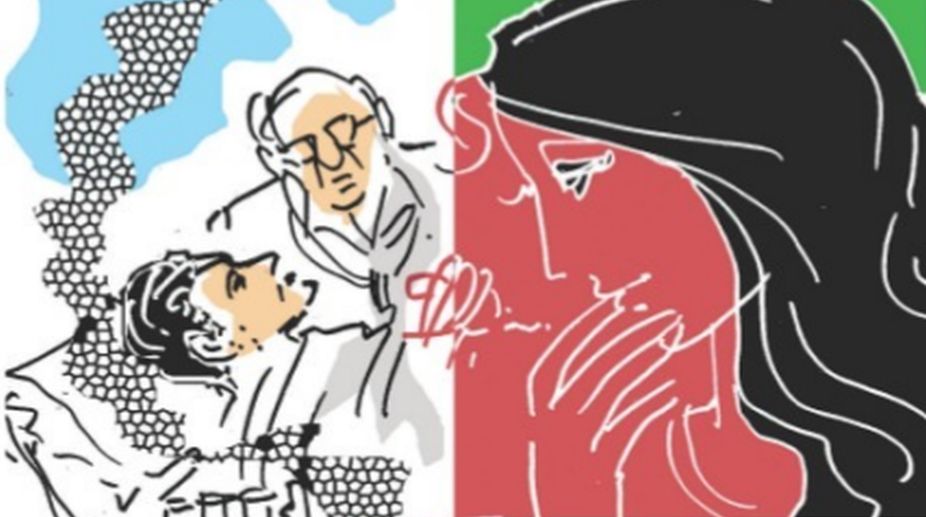The last rites
The people, those sneering “bhadraloks” watched and concluded that they shouldn’t meddle in a brawl between “two groups of anti-socials”.

Our relationship had been eroding for a while, but it was still a shock when she left me. She just went to her mother’s home and never came back. When I called, she said she had decided not to return.
Five years I nursed my sense of loss. Then I met somebody special. She was very special. I met her at a party and at the end of the hour I felt I had struck a chord. We walked out and preferred to be with each other.
Advertisement
That was just the beginning. I wanted to talk to her every day. I wanted to tell her everything. Clearly she felt the same way. In three months we were a number.
Advertisement
I told her about the other relationship. She said, uncomfortably, that she felt guilty because she was usurping someone else’s place. I said the relationship had ended, definitively, before I met her. I was not sure that she was persuaded.
Seven months later I had an accident. It was late and I was tired. Doubtless I was also careless. The front edge of the car struck a concrete block and caved in. Seat belts weren’t then in common use. The steering wheel ploughed through my chest cracking all the ribs on the right side and breaking the sternum.
A colleague was passing by lucky happenstance. He rushed me to a hospital and arranged for a surgeon. He knew of my long-term relationship and called her. Later he thought of my special friend and called her too.
When I recovered from the painkillers, I thought of them. That, in fact, was all I thought of. But none came to see me.
I lay in bed, took pills, read and watched the lengthening shadows of the day. Some friends and relations visited me, but the two persons I most longed to see did not come. I could not have told them so, not in so many words, but both teetered endlessly at the edge of my mind.
The day I was finally released from the hospital, the specialists forbade me to use stairs for two months. Since my apartment was on the second floor, my brother insisted that I stay awhile with him and his wife in their large groundfloor apartment. They took punctilious care of me.
When I was leaving their place, my brother told me that my special friend had called him regularly to ask about my condition. She did not want it mentioned to me.
I still walked and drove with great difficulty. But I went to see her. How could she not come to see me even when my life was in the balance?
She listened quietly and then told me something I did not know. The colleague had called and she had rushed to the hospital. She was told she could not see me immediately because the doctors were in my room, examining me and discussing my status. She had to wait.
She went to the waiting room. The room was empty save for one person. This was the person she felt guilty about. She felt again that she was the usurper. She could not face the other person. She stood, unseen, at the waiting room door for a long time. Then she went home.
She now said to me she felt she was wrong. She should have visited me; she owed me that. But she could not, knowing the other person would be there.
But the other person was never there. She told me when I saw her years later that, though she was distraught, she had actually noticed my special friend at the door. She felt then she couldn’t be at the hospital or in my room. She couldn’t be with me anywhere if there was another presence. She returned home from the waiting room.
I could recall the misery of the days in a hospital bed. Little could reduce the sting. Yet I now knew someone had cared – as we all do – in her own way.
The writer is a Washington-based international development advisor and had worked with the World Bank. He can be reached at mnandy@gmail.com
Advertisement